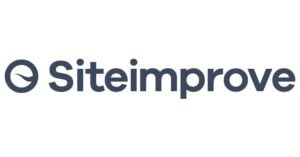Most government agencies and businesses are aware of the Americans with Disabilities Act (ADA) because it’s federal law. However, since its inception, different states have devised their own laws to ensure that all members of society have equal access to what they need, particularly online.
Colorado’s House Bill 21 – 1110 is one example of this and it’s what we will cover in this guide.
After introducing House Bill 21-1110 (1), Colorado became the first state to require both state and local governments to comply with web accessibility standards. House Bill 21 – 1110 was officially signed into law in 2021 by the governor, Jared Polis.

These laws cover what’s already included in the ADA, but regulations have been encoded into state law. This means people with disabilities are able to bring a web accessibility lawsuit to state or federal court should a site not comply with the required standards.
An accessible website is one that’s perceivable, operable, understandable, and robust.
Unfortunately, very few websites are fully accessible and compliant, which is why House Bill 21 – 1110 is welcomed by disability rights groups. It will make it that much harder for government websites to ignore the needs of disabled users.
The Colorado House Bill 21 – 1110 will help standardize web accessibility, ensuring all government and private-sector websites in the United States comply with requirements more quickly.
All acts and laws related to digital accessibility, including House Bill 21-1110 are based on the Web Content Accessibility Guidelines (WCAG). However, this bill takes things one step further with its consistent standards and penalties for non-compliance.
For one, Colorado has implemented much stricter deadlines for compliance as well as hefty fines that could be damaging.
In doing so, the state is able to make web accessibility a priority in the eyes of all states, creating a more inclusive society for all.
This law requires the Chief Information Officer of the Office of Information Technology (OIT) to develop accessibility standards for people with disabilities using the latest WCAG guidelines as a reference.
The head of every state agency will then be required to submit a written plan for implementation by July 1st, 2022. And by July 1st, 2024, must have fully implemented the plan, ensuring all its websites are accessible and compliant.
Any state agency sites that are not fully compliant with OIT accessibility standards by July 2024 could face several consequences.

Here are some of what government agency websites could be dealing with if they miss the web accessibility compliance deadline:
Over and above this, any government agency that excludes people with disabilities will be committing a civil rights violation according to House Bill 21 – 1110.
A Fast and Efficient Way to Comply with Web Accessibility Guidelines
Our top-recommended web accessibility solution is accessiBe. This advanced AI-powered tool makes it easier to apply the latest WCAG standards to your site by simply adding a line of code to the back-end.
To start, all local and state government agencies are encouraged to make a note of the July 1st, 2022, deadline for developing and submitting their web accessibility plans. Once approved by the OIT, an implementation must be completed by July 2024.

Users can freely sue any government agency that misses the 2024 deadline with disabilities for operating a non-compliant an inaccessible website. It also means they can be sued in a state court and not just a federal court.
By understanding the latest WCAG guidelines, you are adhering to the four main principles of WCAG:
But what about non-governmental websites?
House Bill 21 – 1110 currently doesn’t affect websites that belong to businesses or private individuals. However, this doesn’t mean that it should be ignored. To avoid any issues in the future, all businesses and website owners should prioritize web accessibility.
Creating a website with accessibility in mind right from the start will help you steer clear of complications such as lawsuits later on.
Here are some top recommended tools that can help:
 | |||
| Existing Customers |     |     |     |
| Technology | Full-service web accessibility solution | Fully automated web accessibility solution | Manual web accessibility solution and automated browser extension and plugin |
| Compliant in Countries | |||
| Compliance | WCAG | ADA | AODA | Section 508 | EAA | WCAG | ADA | AODA | Section 508 | EAA | WCAG | ADA | Section 508 | EAA |
| Prices | Starts at From $59 | Starts at From $49 | Starts at Custom Quotation Required |
| Partner Program (for Web Agencies) |
|
|
|
| Customer support | Chat & Email Support | Chat & Email Support | Email & Phone Support |
| Free Demo |
Yes Free demo available |
Yes Free demo available |
Yes Free demo available |
| Free Trial |
No credit card needed 7-day free trial |
Credit card required 7-day free trial |
No Free website accessibility audit available |
It’s no longer enough to simply pay attention to the ADA – different states now have their own laws related to web accessibility.
By following these laws, you can do your part to provide disabled users with a more inclusive experience, while protecting your interests at the same time.
Far too many government websites are still not catering to disabled users and House Bill 21 – 1110 aims to start changing that. It’s up to you to decide which side of the law you want to be on.
Start your ADA compliance journey by evaluating your website. A website audit will provide you with all the information you need to decide whether your site complies with WCAG standards or not. Conduct an audit of your site on the Accessibility Checker
Learn More with These Recommended Reads